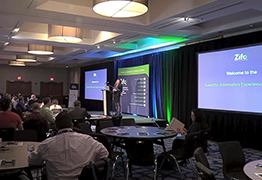AI In The Pharmaceutical And Biotech Industries – Private or Public Cloud?

Image reference: / source
In the pharmaceutical and biotech industries, the adoption of artificial intelligence (AI) is transforming how companies approach drug development, precision medicine, and other critical areas. However, one of the most crucial decisions when implementing AI solutions is choosing the right cloud environment—public, private, or a combination of both. This choice significantly impacts everything from scalability and cost to security and compliance, especially in the context of pre-clinical stages and beyond.
Public Cloud: Scalability and Flexibility
Public cloud platforms, such as Amazon Web Services (AWS) and Microsoft Azure, offer unparalleled scalability, making them a top choice for AI projects that involve large datasets and require extensive computational power. These platforms are ideal for biotech firms that experience fluctuating workloads, enabling them to scale resources up or down as needed. The pay-as-you-go model of public cloud services is particularly advantageous for companies looking to manage costs efficiently while maintaining the flexibility to deploy AI-driven initiatives rapidly.
For biotech and pharmaceutical companies, this flexibility is crucial. AI models used in drug discovery or patient data analysis often require bursts of high computational power, which public clouds can provide without the need for upfront investment in physical infrastructure. Moreover, the ability to integrate seamlessly with other advanced services, such as machine learning frameworks and big data analytics tools, further enhances the appeal of public cloud environments.
Private Cloud: Security and Compliance
While the public cloud offers flexibility, the private cloud stands out for its enhanced security and compliance capabilities. In the pharmaceutical industry, where handling sensitive patient data and adhering to strict regulatory standards is non-negotiable, a private cloud environment offers the control and protection needed to ensure compliance. Although the initial investment in private cloud infrastructure is higher, it can lead to long-term savings and a more controlled environment for consistent, large-scale AI operations.
Private cloud environments allow organizations to maintain full control over their data, which is critical for protecting intellectual property and ensuring that AI models and datasets remain secure. This is particularly important in an industry where the stakes are high, and data breaches or regulatory non-compliance can result in significant financial and reputational damage.
Local Hosting: Maximum Control, High Resource Demands
An alternative to public and private clouds is local hosting, where AI models like ChatGPT are run on-premises. This option provides the highest level of control over data and operations, making it a viable choice for pharmaceutical and biotech companies that handle extremely sensitive information. Local hosting can enhance data privacy and ensure that AI operations are fully aligned with internal security protocols.
However, the trade-offs are significant. Running AI models on-premises requires substantial computational resources, including high-end hardware, specialized software, and ongoing maintenance. This approach is generally feasible only for organizations with the technical expertise and financial resources to support it, limiting its adoption to larger companies or those with specific needs that cannot be met by cloud solutions.
Finding the Right Balance
For biotech and pharma companies, the decision between public cloud, private cloud, and local hosting should be guided by a careful assessment of their specific needs. Public cloud environments excel in flexibility and are ideal for projects with variable workloads. Private clouds offer a more secure and stable environment, suitable for handling sensitive data and ensuring compliance with industry regulations. Local hosting, while resource-intensive, provides the highest level of control, making it an option for organizations with the necessary infrastructure and expertise.
Ultimately, striking the right balance between these options is key to driving innovation in drug development and precision medicine. By aligning AI deployments with both operational requirements and regulatory demands, companies can pave the way for groundbreaking advancements while maintaining the highest standards of data security and compliance.
Conclusion
As AI continues to shape the future of the pharmaceutical and biotech industries, how is your organization leveraging these technologies?
Are you hosting AI models like ChatGPT on a private cloud for enhanced security, or are you taking advantage of the scalability offered by the public cloud? Or perhaps you’re investing in local hosting to achieve maximum control over your data? The decisions you make today will define your organization’s ability to innovate and succeed in this rapidly evolving landscape.
If you have any questions or would like to discuss AI model hosting further, please get in touch at info@zifornd.com





